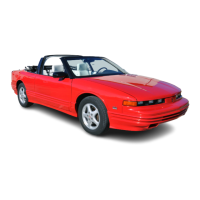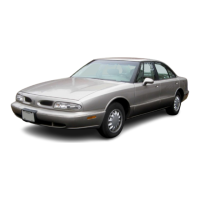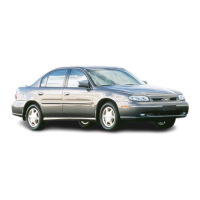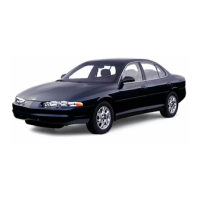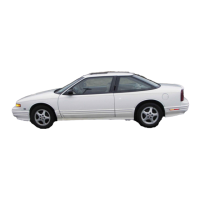you’re accelerating or driving up a hill. That’s normal
and you don’t have to buy a higher octane fuel to get rid
of
pinging. It’s the heavy, constant knock that means
you have a problem.
What
about gasoline with blending materials that
contain oxygen (oxygenates), such as MTBE or alcohol?
MTBE
is “methyl tertiary-butyl ether.” Fuel that is no
more than
15%
MTBE
is
fine for your vehicle.
Ethanol
is ethyl or grain alcohol. Properly-blended fuel
that
is
no more than
10%
ethanoE
is fine for your
vehicle.
Methanol
is methyl or wood alcohol.
I
I
I
NOTICE:
Fuel that is more than
5%
methanol is bad
for
your vehicle. Don’t use it. It can corrode metal
parts in your fuel system and also damage plastic
and rubber parts. That damage wouldn’t be
covered under your warranty. And even at
5%
or
less, there must be “cosolvents” and corrosion
preventers in this fuel to help avoid these
problems.
Gasolines for Cleaner Air
Your use of gasoline with deposit control additives will
help prevent deposits from forming in your engine and
fuel system. That helps keep your engine in tune and
your emission control system working properly. It’s
good for your vehicle, and you’ll be doing your part for
cleaner air.
Many gasolines are now blended with oxygenates.
General Motors recommends that you use gasolines with
these blending materials, such as MTBE and ethanol.
By doing
so,
you can help clean the air, especially in
those parts
of
the country that have high carbon
monoxide levels.
In
addition, some gasoline suppliers are now producing
reformulated gasolines. These gasolines are specially
designed to reduce vehicle emissions. General Motors
recommends that you use reformulated gasoline. By
doing
so,
you can help clean the air, especially
in
those
parts
of
the country that have high ozone levels.
You should ask your service station operators if their
gasolines contain deposit control additives and
oxygenates, and
if
they have been reformulated to
reduce vehicle emissions.
6-5
~
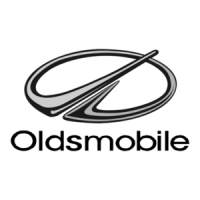
